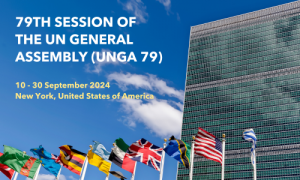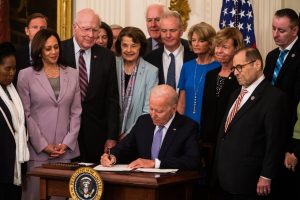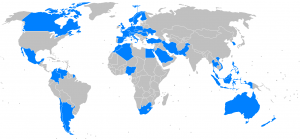
In a world of continuing geopolitical tensions, myself and colleagues from CWD have been determined to probe into the role(s) of Middle Powers (MPs) and to describe Middle Power Diplomacy (MPD) all in the hopes of uncovering how MPs might assist in stabilizing international relations and the current global order.
Back in December I took my first crack at the subject with this Alan’s Newsletter Substack Post – ‘A Start on Middle Powers and Their Diplomacy’. Also, CWD, then ‘China-West Dialogue’ and now, perhaps, ‘Changing World Dialogue’ called on some of our expert compatriots to examine MPs and MPD in a variety of settings.
As I wrote then:
“So, where did we look? We in fact used the fall of 2024 to showcase a number of possible MPs and to examine the policies and political behaviors followed. At CWD we held the following Zoom sessions:
· Our lead off was on Japan with Mike Mochizuki (GWU) as the Lead Organizer;
· then Active Non-Alignment with Latin America, led by Jorge Heine (BU) and former Ambassador for Chile as the Lead Organizer;
· South Korea with Yul Sohn (Yonsei University) as the Lead Organizer;
· Turkey with Guven Sak (Tepav) as the Lead Organizer;
· Australia and New Zealand with Shiro Armstrong (ANU/EAF) as Lead Organizer assisted by our own Richard Carey (OECD Alumnus); and
· Indonesia and ASEAN with Maria Monica Wihardja (ISEAS) as the Lead Organizer.”
Why focus on these global order actors? Well, as I suggested at the time:
“Then we were interested in what influence, or potential influence these MPs expressed in the growing global order/disorder – growing tensions between the United States and China and the unremitting regional conflicts in the Middle East and Europe. Where, if anywhere, were MPs influencing international relations and enhancing, perhaps, international stability and advancing global governance actions especially in such critical areas as climate transition, climate finance, debt management, global financial regulation and more? These efforts, we anticipated, could stabilize global relations in the face of current damaging international actions and the sour relations held by the leading powers, China and the US. We were determined to look at MPs, especially with the return of a US Trump administration and the possible significant impact of Trump 2.0 on global order stability.”
This past weekend I was reminded of MP presence and action in a piece in the Toronto Star by a colleague from the University of Toronto’s Munk School of Global Affairs & Public Policy, Joseph Wong. These days Joe teaches at the Munk School but he also serves as Vice President International at the University. Just recently he wrote this piece titled, “Rise of the middle powers. Here’s how Canada can wean itself off of U.S. dependence”. Wong’s focus, not surprisingly, was on Canada and the role of MPs in shaping the global economy and strengthening democratic practices but Joe saw Canada’s actions in the face of Trump 2.0 as part of a larger MP picture to weaken the negative impact of major powers in the larger global order. As he wrote:
“As leaders of the G7 countries prepare to meet in Kananaskis next week, middle power nations, such as Canada, need to step up and take on leadership roles in restructuring the global economy, shoring up democratic practices internationally and investing in talent to boost productivity and innovation at home.”
“The simultaneous efforts by industrial economies to diversify their foreign economic relations have the potential to restructure the world economy. Each of these economies on its own may be a middle power, but together, they represent a sizable portion of the global economy.”
“Imagine if each of these middle powers reduced their trade dependence on the U.S.by just 10 per cent and made up that deficit by solidifying alternative trade partners and building up new and more resilient supply chains. Together they could collectively rewire the circuitry of the global economy for the long-term.”
So the Wong piece was a reminder of the potential influence of yes, MPs. And my on again off again MP focus was reignited. It is evident as this Post unfolds that MP action is on the minds of many of my colleagues as we see the aggressive policies of Trump 2.0. Mathias Jobelius, the Director of the Friedrich-Ebert-Stiftung’s office in New York just recently wrote a piece that examined the undermining of the key multilateral institution the UN now entering its 80th year. Jobelius assessed the state of multilateralism in an IPS piece, titled: “Unfinished Business”. In that piece he raised the question of whether multilateralism could continue to exist in an emerging multipolar world. He answered in the positive and declared this:
“The answer is ‘Yes’. The basics are all in place. The overwhelming majority of countries would like a rules-based order and support the principles of the UN Charter, even if they resist its selective application.”
And how could this be achieved, Jobelius turned to MPs:
“This needs to be utilised — for example, by creating an alliance of medium-sized powers. If 20 large middle powers from all continents with a commitment to multilateralism were to join forces, they would carry enough weight to counter the big power politics and strengthen the multilateral order.”
Continuing the MP narrative, my colleague Bruce Jones from Brookings and a number of his compatriots, Ravi Agrawal, Antonio de Aguiar Patriota, Karin von Hippel, Lynn Kuok and Susana Malcorra identified the critical role for such MPs in a piece these authors, did for the World Economic Forum (WEF) White Paper compendium titled: “Shaping Cooperation in a Fragmenting World” that was published in January 2024. Their chapter, is titled, “Global Security “Cooperation” in an age of distrust and insecurity: Managing distrust and forging responses despite it necessitates new approaches that include establishing new partnership mechanisms”. In the piece they acknowledge the growing conflict in the international system:
“The international system has never been free of violence and inequity. Yet today, as violence is rising, order is eroding and the spectre of nuclear war is casting its menacing shadow, greater urgency – and creativity – is needed to reduce the risk of conflict.”
Part of their solution as offered in the piece includes the creation of a an institution that is built in part on MPs, what they describe as a “middle/major powers” grouping – an M-10 (or similar), as these authors call it. And what is that:
S“At this moment of intense need, a standing mechanism that links the western major and middle powers with the non-Western ones (Brazil, India, South Africa, the United Arab Emirates, etc.) would create a diplomatic mechanism that could straddle the increasingly bifurcated worlds of the G7, Quadrilateral Security Dialogue (the Quad) and the expanded BRICS (Brazil, Russia, India, China and South Africa, plus newly admitted Egypt, Ethiopia, Iran, Saudi Arabia and the United Arab Emirates).”
“The proposed grouping – a kind of “coalition of the capable” – would have the diplomatic flexibility and heft to raise the costs to the great powers for actions or behaviour that seriously undermined the multilateral order and the quiet diplomatic channels to help find de-escalatory off-ramps and similar mechanisms.”
“Within this, there should be a “middle powers mediation group” on issues like Russia/Ukraine. Unlike the various unilateral peace initiatives attempted to date, a middle-powers grouping with cross-regional representation would have the diplomatic weight, the range of perspectives and the combined geopolitical clout to change the terms of debate around viable pathways to war termination and a stable peace.”
So, MPs could as they see it buttress the impaired multilateral system. Good and sensible ideas but yet we do not see such initiatives at least in this moment of the global order. Unfortunately, in fact, there are MP initiatives that have not ‘taken off’ as I found out. Let me just mention one that seemed significantly promising: the ‘Alliance for Multilateralism’. I was quite taken with this initiative and focused on it in my chapter in Lim Wonhyuk’s edited volume for Brooking’s, Unfinished Transformation: Domestic Politics and International Relations since the Covid-19 Pandemic”. at that time with my chapter, “The Possibilities for “Effective Multilateralism” in the Coming Global Order”. The initiative seemed to me as a major MP effort. As I then described it in the chapter:
(P. 124)* “What may be helpful, in fact, is a designation recently proposed by the current French foreign minister, Jean Yves Le Drain, along with the German foreign minister, Heiko Maas. In 2019, these foreign ministers launched the new “Alliance for Multilateralism,” tied to the United Nations. The leaders and the participants in this alliance are not referred to as middle powers, but the host and cohost countries and the participants are all designated as “goodwill powers.” This designation emphasizes the collective action purpose of this contemporary multilateralism. There is no reference to “middle powers,” or powers generally, which, as I have just pointed out, is rather misleading in any case. Thus, “goodwill powers” may be a useful term. We will come back to the idea of goodwill powers as we explore “effective multilateralism” in the final section.”
(P. 127) “Let us return for a moment to the Alliance for Multilateralism. It appears as yet to be another instance of effective multilateral effort in the contemporary global order. As pointed out above, this initiative was launched by the foreign ministers of France and Germany. Its initial meeting was on April 2, 2019, in New York during the German UN Security Council Presidency. It was followed by a meeting on September 26, held during the High-Level Week at the UN General Assembly. The meeting was called by Germany and France and was cohosted by Canada, Mexico, Chile, Singapore, and Ghana. Forty eight countries participated in this September gathering.”
(P. 128) “The goals, as declared by the Alliance, are:
· to protect and preserve international norms, agreements and institutions that are under pressure or in peril;
· to pursue a more proactive agenda in policy areas that lack effective governance and where new challenges require collective action; and
· to advance reforms, without compromising on key principles and values, in order to make multilateral institutions and the global political and economic order more inclusive and effective in delivering tangible results to citizens around the world.
The Alliance also makes a point of identifying its outreach to nonstate actors as stakeholders and partners for the challenges the Alliance faces. The Alliance has held four meetings since its creation. These gatherings sought to promote, among other things:
· improved governance for the digital world. The Alliance bolstered support for the Paris Call for Trust and Security in Cyberspace;
· implementation of international humanitarian law to protect the work of humanitarian workers and space for humanitarian action and support for the fight against impunity, at the opening of the session of the Human Rights Council in Geneva on February 24, 2020; and
· support for the central role of the World Health Organization in the management of COVID19.”
The Alliance for Multilateralism seemed like a dramatic instance of real world MP action and MPD. But it appears as though the network did not survive its initiation.
I suspect, and others seem to suspect as well that the Informals – the G7, the G20 and the BRICS+ – might provide the environment for possible MP action. And indeed just as I was finishing off this Post – sorry for this rather unusually lengthy Post – I was met with a piece that does exactly that. So my good colleague John Ikenberry from Princeton and some of his colleagues, Victor Cha, from CSIS and Georgetown University and John Hamre from CSIS just published in Foreign Affairs, “How Global Governance Can Survive With the Right Reforms, the G-7 Can Sustain the Rules-Based Order.” There they see the prospect for global governance action from the G7:
“The body that develops solutions to today’s global problems must becomposed of governments that trust each other, share similar values,possess significant economic and political power, and have a trackrecord of working together. This is where the G-7 comes in.”
“But the G-7 can aim for meaningful action that sustains global order. By coordinating their economic, development, security, energy, and technology policies, its members can impose sanctions to deter conflict, set rules and norms to keep pace with technological innovation, punish predatory economic behavior, support democratic governance, combat disinformation, and help the developing world with food security and labor standards.”
The problem, however, as I see it in their focus on the G7 is that their hope for such action requires altering the current membership and the ways that it currently operates. As they say:
“Before they can play this role, however, the G-7 must be overhauled.”
It seems to me that effective action by MPs or MPs plus some major powers possibly can only occur on an informal basis otherwise we are back to, dare I say it, UN reform. Realistically, changes of the sort proposed by John and his colleagues are unfortunately unlikely to happen. Still a focus on the Informals with the G7 occuring on June 15-17th in Canada, the BRICS+ Summit scheduled for July 6-7th in Rio de Janeiro and G20 Summit in Johannesburg on November 22-23rd, all are worth watching closely for signs of MP and possibly beyond MP collective action. We will certainly be watching and reporting.
The Post appeared originally at Alan’s Newsletter – https://globalsummitryproject.substack.com/p/still-in-search-of-middle-power-leadership
*The page numbers are used here as there is no digital version of the Lim Wonhyuk volume, as I mentioned in an earlier Substack Post.


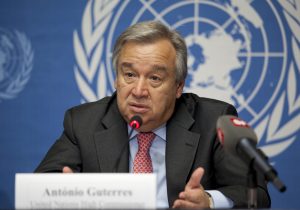
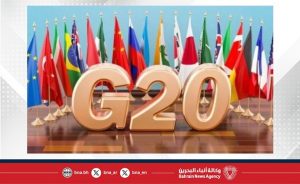
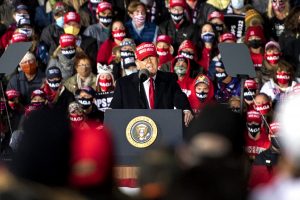
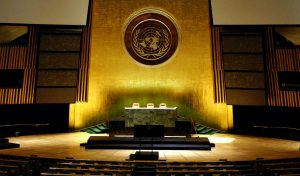
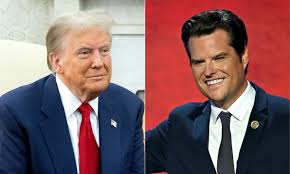
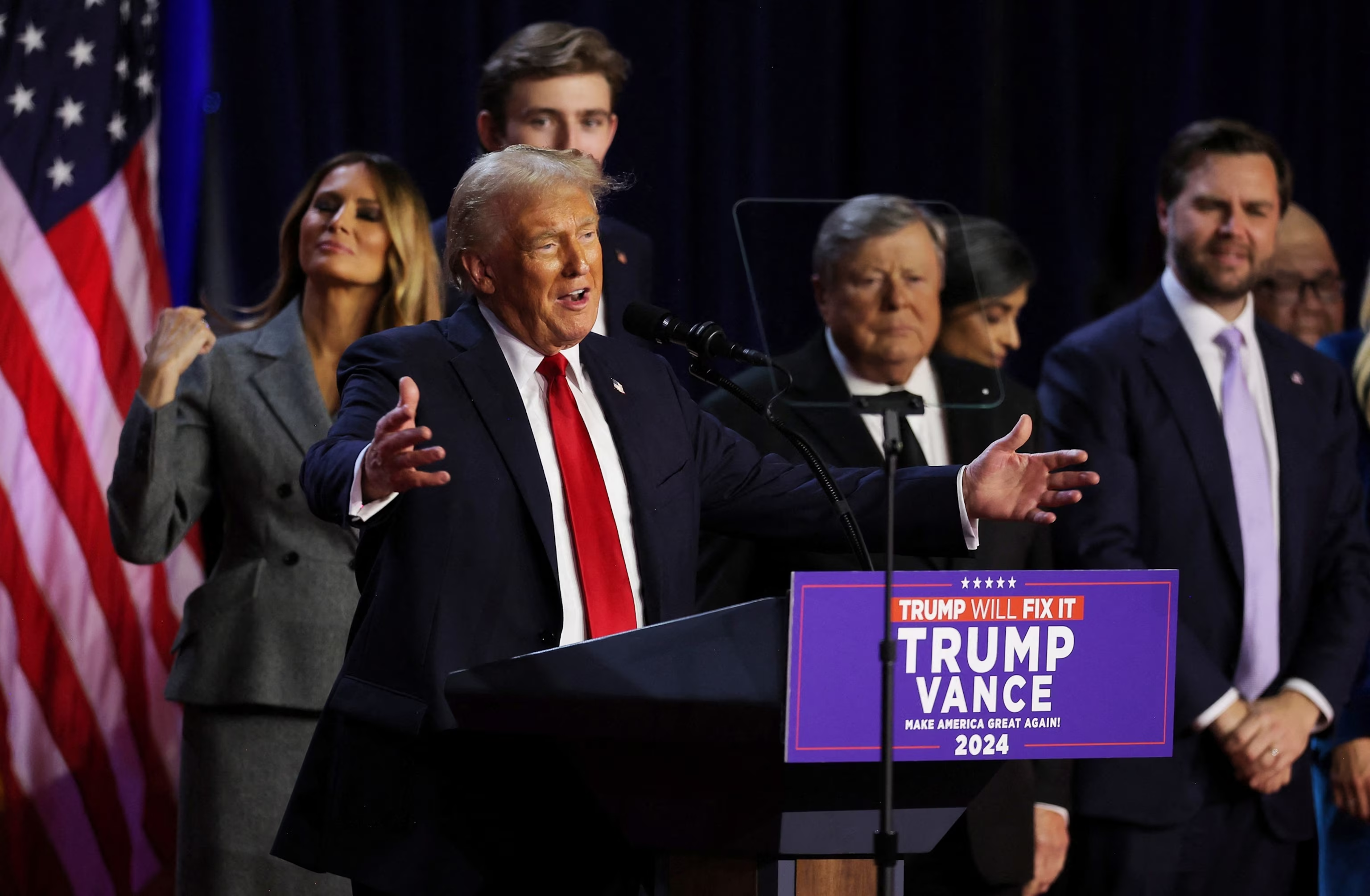 Now we are out a bit early. But that’s not surprising because of the US national elections on Tuesday night. So a few thoughts on that and then a redirection to the, “what do we do about the global order in the light of Trump’s return, including many of his former advisers, to the White House”
Now we are out a bit early. But that’s not surprising because of the US national elections on Tuesday night. So a few thoughts on that and then a redirection to the, “what do we do about the global order in the light of Trump’s return, including many of his former advisers, to the White House”